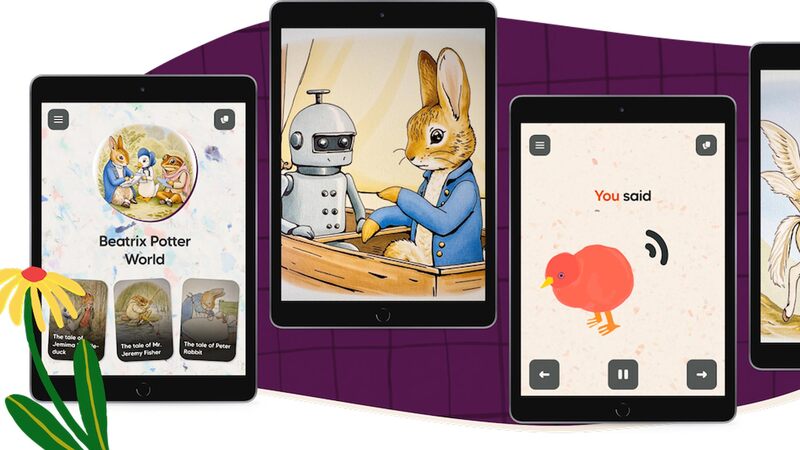You are viewing your 1 free article this month. Login to read more articles.
Nine publishers launch empathy manifesto
Nine publishers including Hachette, Penguin Random House Children's and Nosy Crow have launched a manifesto committing themselves to increased empathy-building strategies over the next three years.
The publishers, part of the Empathy Circle group, came together to back the growth of Empathy Day. The manifesto was launched at The Bookseller's Children's Conference on 22nd September.
Underpinning a three-year plan, the manifesto has eight pledges, ranging from staff and author training in the research and science of empathy, to integrating it in diversity and inclusion strategies.
The publishers that make up the Empathy Circle are Andersen Press, Bloomsbury, Bonnier Books, Hachette, Macmillan, Penguin Random House Children’s, Nosy Crow, Usborne and Walker Books.
Kate Wilson, c.e.o. of Nosy Crow, said: “We’re so proud to have been part of this empathy drive from the very beginning, as founder members of the Empathy Circle. We’re looking forward to helping Empathy Day grow and to being part of an ever-expanding group of publishers getting behind this crucial work to build a more empathetic society.”
Shannon Cullen of Penguin Random House Children’s Books commented: “The scientific research is here. The books are here. The tools are being provided. We now have everything we need to raise an empathy-fuelled generation through the power of reading, and the Empathy Circle Manifesto is a fantastic manifestation of the collective commitment to make it happen.”
Empathy Day aims to teach children and young people about the importance of empathy, how to action it, and how to use the power of books and stories to transmit "transformational" empathic experiences. The event is supported by authors and backed by libraries, which will hold activities for families.
Speaking at the conference, Miranda McKearney, founder of not-for-profit company EmpathyLab, said "This is not a fluffy thing—empathy is a key life skill, and Empathy Day has a scientific research base. Stories are a training ground for understanding other people's feelings.”
Addressing publishers, she said: "Your books are playing a direct role in building empathy skills. That is a powerful longer-term strategy for social change, for combating hatred."
This year's Empathy Day saw a 44% increase in schools’ participation and a reach of 305,000 children. In all, 137 library authorities now recognise the initiative, up from just 19 in 2017, its first year. For the first time, BBC Teach curated a collection of classroom resources to help teachers mark the day.
McKearney was joined at the conference by Kate Clarke, head of health and wellbeing at Pembroke Dock Community School. Teachers at the school were looking for ways to encourage better and more thoughtful behaviour in their students, and signed up for EmpathyLab's 18-month programme. The school also encouraged reading at home. She said: "We've found this has built their perspective-taking abilities and improved their language for emotions, and pupils are more able to discuss their feelings freely and put names to emotions, which they found difficult previously."
She also said the standard of reading had improved overall, and that more children were regularly reading in school. Incidents of racism and racist graffiti have occurred in the school's locality, and Clarke has encouraged the use of reading diverse texts to help students "question what they were seeing and build empathy-based pro-social attitudes", focusing on the prejudice refugees often experience when arriving in the UK. Clarke is now pushing for the local community to recognise the benefits of Empathy Day.
















